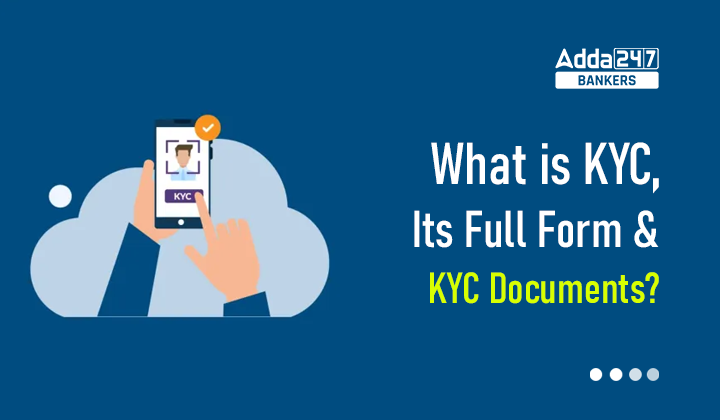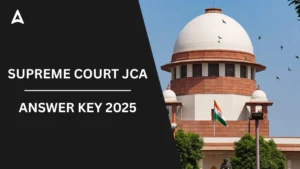Table of Contents
KYC Full Form: KYC (Know Your Customer) refers to the process of verifying all customers’ and clients’ identities and addresses by banks, insurance companies, and other institutions before or during transactions with their customers. KYC has been made mandatory by the RBI for all banks, financial institutions, and digital payment companies that conduct financial transactions. Let’s take a closer look at what KYC is and the necessary KYC documents.
What is the meaning of KYC?
Illegal activities such as money laundering and fraud can make financial transactions risky, which is why KYC was introduced in India in 2002. KYC stands for ‘Know Your Customer or ‘Know Your Client.’ KYC refers to the process of authenticating and verifying documents related to a customer’s identity and address before allowing them to use any services. The Central KYC Records Registry assigns a unique number/code known as the Know Your Customer/Client Identifier once the KYC verification is complete. In 2004, the Reserve Bank of India (RBI) made KYC verification of all old and new customers mandatory for banks, financial institutions, and intermediaries. In doing so, the RBI ensured that all transactions are carried out after a careful assessment of a customer’s identity, which will aid in the prevention of fraud. Other regulatory bodies soon followed suit, making KYC verification mandatory for all customers and clients.
What is KYC in banking?
KYC in banking refers to the process of verifying documents to establish a customer’s identity. Its goal is to reduce malpractices like money laundering and financial fraud by ensuring that transactions are authentic. According to RBI guidelines, all banks, financial institutions, and intermediaries must conduct KYC verification of customers before providing them with services. In this regard, the KYC documents list, which catalogues the officially valid documents for KYC verification, becomes important. KYC compliance is also a requirement under the Prevention of Money Laundering Act of 2002.
What is the need for KYC?
It is necessary to complete the KYC process in order to conduct any type of financial transaction, including opening a savings bank account, taking advantage of fixed deposit (FD) and third-party wallet benefits, and starting a mutual fund transaction. In fact, full KYC is now required to open a Demat account or a stock trading account as well as to use the services of asset management companies and intermediaries, as per the Securities and Exchange Board of India’s (SEBI) guidelines
What are the benefits of KYC?
- Determines a customer’s identity
- Aids in understanding the nature of a customer’s financial activities.
- Monitors customer activities to help assess the risk of money laundering.
- Protects lending institutions against losses and frauds caused by illegal transactions.
What are the different types of KYC Verification?
There are two types of KYC verification:
- Aadhaar-based KYC: KYC verification using Aadhaar can be done online. You can choose between Aadhaar OTP-based online KYC and Aadhaar-based Biometric KYC. Please keep in mind that if you choose this KYC verification option, you can only invest up to $50,000 in a mutual fund per year.
- In-person KYC verification: This type of KYC verification is done offline. To complete the in-person verification, you can go to a KYC kiosk (IPV). You can also contact the KYC Registration Agency and request that an executive come to your home to verify your identity. If you use the in-person KYC verification service, there is no limit to how much money you can invest.
What are the documents required for KYC Verification?
According to the guidelines issued by the Government of India, six documents qualify as “Officially Valid Documents” (OVDs) and can be used for identity verification. Even if you have previously submitted the KYC documents to an institution, they may request the documentary proof again in order to periodically update the KYC records. The following documents are required for the KYC process:
Proof of Identity:
- Unique Identification Number (UID) such as Aadhaar, Passport, Driving license, and Voter ID card
- PAN card
- Identity card or document with your photo, which is issued by any Statutory/Regulatory Authorities, Central/State Government, and their Departments
- Identity cards issued by Scheduled Commercial Banks, Public Sector Undertakings, and Public Financial Institutions
- Identity cards issued by Colleges, which are affiliated to Universities, Professional Bodies including ICAI, ICWAI, ICSI, and Bar Council to their Members
Proof of Address:
- Passport, Voters Identity Card, Registered Sale or Lease Agreement of Residence, Ration Card, Driving License, Insurance Copy or Flat Maintenance bill
- Utility bills such as Landline Telephone Bills, Gas bills, or Electricity bills (not more than three months old)
- Bank Account Statement or Passbook entries (not more than three months old)
- Self-declaration by the Supreme Court and High Court judges, which specify their new address
- Proof of residence issued by any of the following bodies:
- Bank Managers of Scheduled Commercial Banks
- Multinational Foreign Banks
- Scheduled Co-Operative Bank
- Elected representatives to the Legislative Assembly
- Gazetted Officer
- Notary public
- Parliament
- Documents issued by any Government or Statutory Authority
- Identity cards or documents with an address issued to their members by the Central or State Government and their Departments, Statutory or Regulatory Authorities, Scheduled Commercial Banks, Public Sector Undertakings, Public Financial Institutions, and Colleges affiliated with Professional Bodies such as ICAI, ICWAI, Bar Council, and ICSI
Latest Govt Jobs Notifications
|
|
|
| Current Affairs April 2022 | |





 GA Capsule for SBI Clerk Mains 2025, Dow...
GA Capsule for SBI Clerk Mains 2025, Dow...
 The Hindu Review October 2022: Download ...
The Hindu Review October 2022: Download ...
 Supreme Court JCA Answer Key 2025 Out, D...
Supreme Court JCA Answer Key 2025 Out, D...


